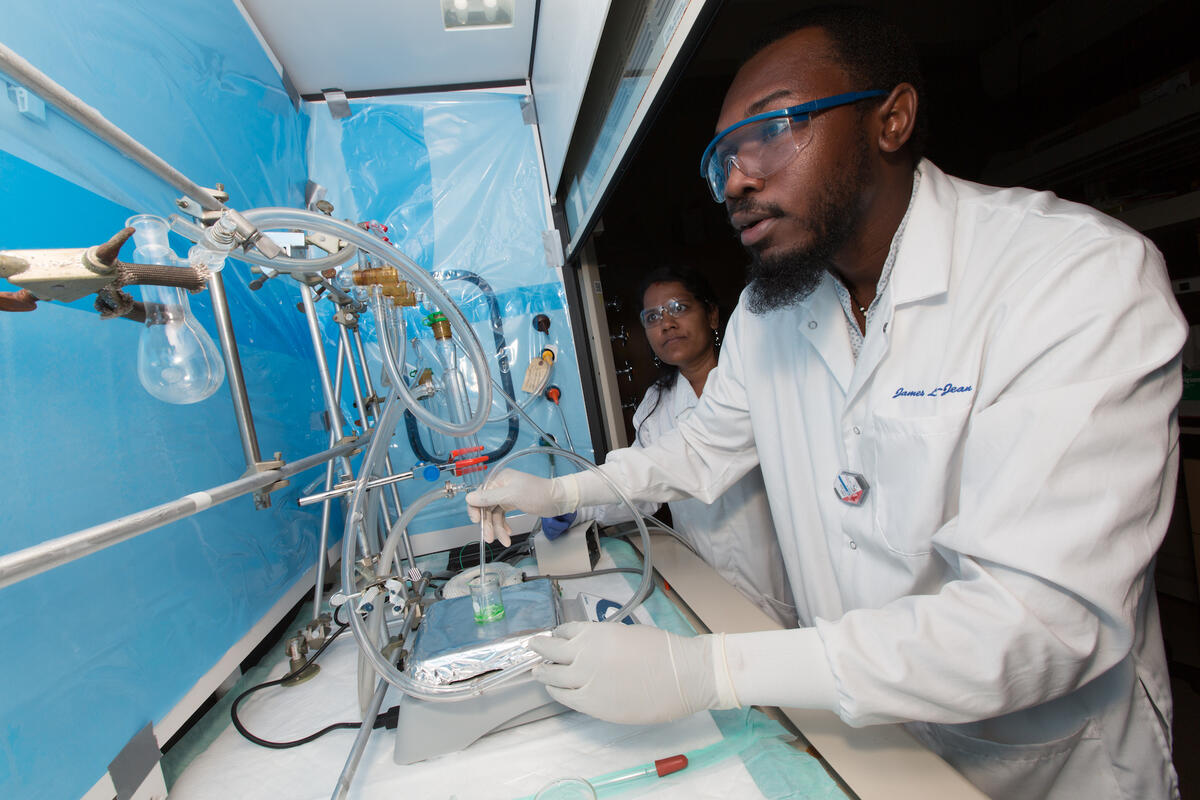UNLV’s radiochemistry program is partnering with the University of California, Berkeley and a consortium of universities and national laboratories for research and development in nuclear science, engineering, and security.
The consortium is supported by a five-year, $25 million grant from the U.S. Department of Energy’s National Nuclear Security Administration (NNSA). UNLV’s radiochemistry program is expected to receive $2 million. This is the third round of funding for UNLV as part of the Berkeley-led team.
Radiochemistry professors Artem Gelis, Ken Czerwinski, and Frederic Poineau lead UNLV's research team on the grant. According to Gelis, the university will receive funds over the next five years to support Ph.D. students in radiochemistry and research on isotope production for medical applications, molten salt chemistry for nuclear reactor application, and microfluidic separations for nuclear fuel cycle applications.
“Congratulations to UNLV for receiving this funding, which will help to advance their research in nuclear science, engineering, and safety – all issues important to the state of Nevada," said U.S. Sen. Jacky Rosen, who serves as a member of the Senate Armed Services Committee's Subcommittee on Strategic Forces. “I know the benefits that nuclear science and engineering provide our nation. The research UNLV is conducting will further our goals of development, while working to advance measures that keep our nation’s nuclear stockpile safe and secure.”
In addition to UNLV’s work, consortium members will carry out R&D in five focus areas: nuclear physics and nuclear data; radiochemistry and nuclear chemistry; nuclear material science; radiation detection; and nuclear chemical engineering and nuclear engineering.
UNLV’s radiochemistry program, started in 2004, has grown into one of the nation’s most respected programs of its kind for research and education. Radiochemists explore the radioactive and chemical characteristics of elements and compounds to address technical needs in many areas, including the behavior of contaminants in the environment, radioactive waste treatment and disposal, and the beneficial uses of radioactive materials throughout the medical profession.
The program previously hosted the Department of Energy sponsored Radiochemistry Fuel Cycle Summer School, and students received 10 top placement awards in the DOE’s Innovations in Fuel Cycle Research Award competition. Graduates of the program routinely secure internships, positions, or other opportunities at Los Alamos National Laboratory, Lawrence Livermore National Laboratory, Argonne National Laboratory, and Pacific Northwest National Laboratory.
“A strong pipeline of new technical talent for our laboratories is critical to our mission of supporting U.S. national security objectives in reducing global nuclear security threats,” said Kasia Mendelsohn, acting deputy administrator for defense nuclear nonproliferation at NNSA. “Over the past decade, nearly 500 degrees have been awarded through our three university consortia, resulting in more than 140 new career placements at the national laboratories.”
Additional consortium members include Air Force Institute of Technology; George Washington University; Michigan State University; North Carolina State University; Texas A&M University; University of California, Davis; University of Illinois, Urbana-Champaign; University of New Mexico; University of Tennessee, Knoxville. The 11 universities are partnering with five national laboratories: Los Alamos National Laboratory, Lawrence Berkeley National Laboratory, Lawrence Livermore National Laboratory, Oak Ridge National Laboratory, and Sandia National Laboratories.



